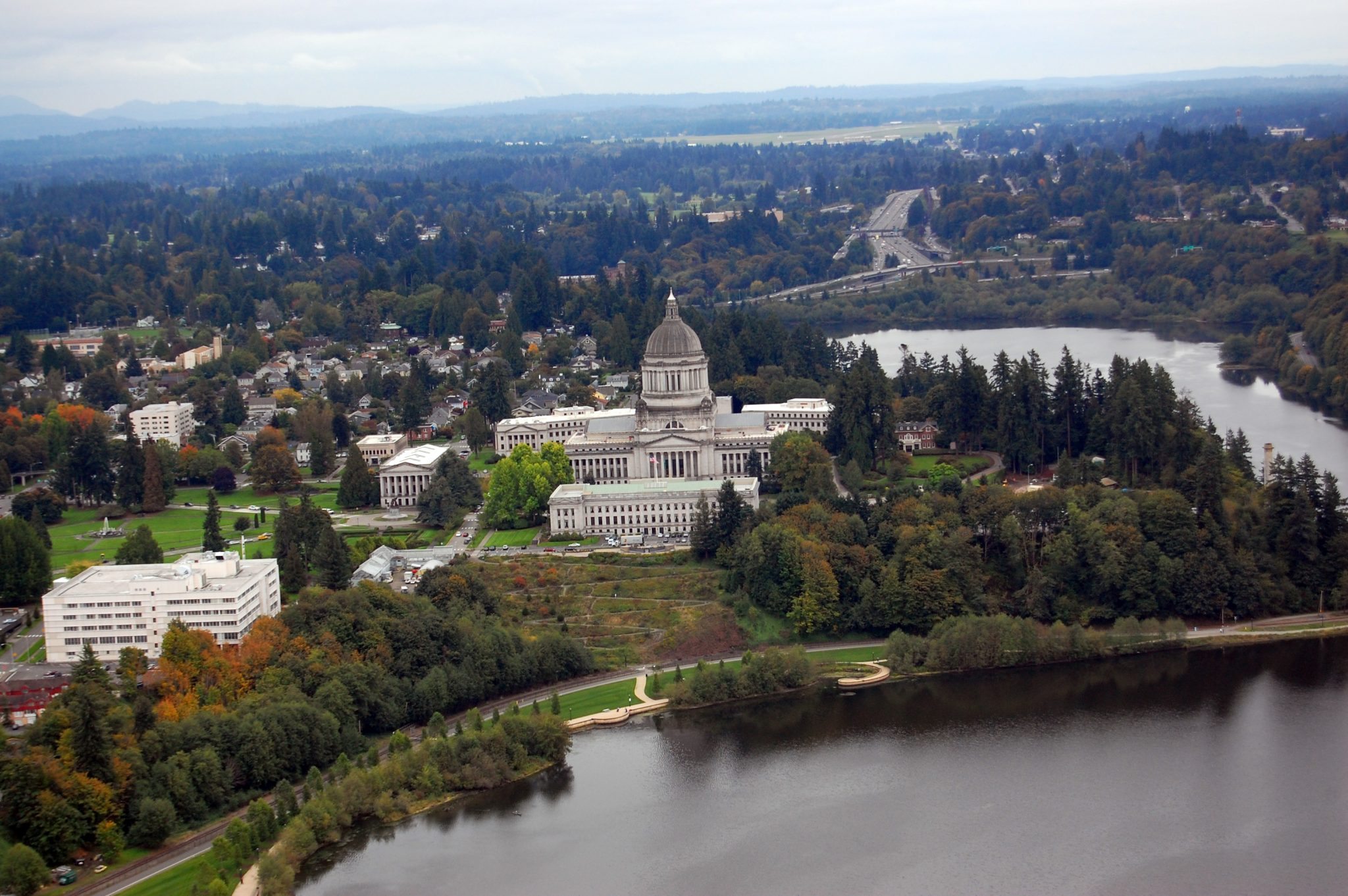Reporter Robert Mak compares Jay Inslee’s 2015-17 to state House Democrats’ plan in a recent video. And, as Shift pointed out, the two are awfully similar.
This Throw Back Thursday, we’re taking a look back at Inslee’s budget plan to see how it stacks up to Democrats’ proposal.
Mak points out that both Inslee and House Democrats’ budgets call for new revenue (a.k.a. tax hikes) to the tune of $1.5 billion for the next two years. That figure increases to $2 billion-plus for the next budget cycle. Of course, the tax hikes are despite the fact that the state will take in $3 billion more in revenue for the next two-year budget cycle (2015-2017). That’s an 8 percent increase from our state’s operating budget of $33.8 billion for 2013-15.
Inslee’s primary method of obtaining the new revenue is via a state capital gains income tax. House Democrats endorse the idea, proposing a 5% tax rate rather than Inslee’s 7% rate.
Inslee and House Democrats both attempt to justify the constitutionality of a state capital gains income tax by classifying it as an excise tax. Of course, a state capital gains income tax is a tax on income. It is, as Shift pointed out, just another form of a state income tax. Classified as an income tax and not as an excise tax, the proposed state capital gains income tax becomes unconstitutional.
As the Washington Policy Center points out, “Under the state constitution, property cannot be taxed at a rate greater than 1 percent and the taxes must be uniform. The state Supreme Court has repeatedly ruled that “income” is property and that taxes on income must conform to the 1 percent limit.”
House Democrats are also pushing Inslee’s plans to charge a sales tax on bottled water—a tax Washington voters have rejected repeatedly. In 2010, Washington voters passed the “Washington Repeal Tax Law Amendments Initiative,” also known as Initiative 1107, by more than 60 percent. I-1107 reversed Democrats’ attempt to amend state law to include a sales tax on candy and bottled water. Democrats’ continuous push for a tax on bottled water—just like their continuous push for a state income tax—is just another example of how they refuse to accept the will of Washington voters.
House Democrats’ budget also follows Inslee’s lead on spending. Democrats’ propose a spending increase of $5.2 billion, nearly equivalent to Inslee’s proposal. In both plans, spending would increase by more than 15% from the last budget. Both new spending plans concentrate on rewarding Democrats’ million-dollar campaign donors—including the Washington Education Association (WEA), the Washington Federation of State Employees (WFSE) and the Service Employees International Union (SEIU)—with nearly a billion dollars in pay raises.
The biggest—and by far most significant—difference between Inslee and House Democrats’ budgets is the cap-and-tax scheme. Even House Democrats’ couldn’t get behind Inslee’s job-killing cap-and-tax proposal, although they tried to save face by suggesting they simply needed more time to figure out how the policy would be implemented. The truth is, Inslee could not even find enough Democrats willing to vote for his cap-and-tax scheme.
Shift was the lone media voice reporting that Inslee did not have enough support from members of his own party to pass his cap-and-tax scheme. The telltale sign of the lack of support among Democrats was the fact that the bill only garnered 37 co-sponsors (all Democrats) in the House. The lack of majority co-sponsors signaled Inslee did not have the 50 votes he needed.
Simply put, not even Democrats could overcome their anxiety over the policy’s negative economic impacts by swallowing false claims. Unfortunately, that did not stop mainstream media types, like the Seattle Times’ Danny Westneat, from attempting to blame state Senate Republicans for stonewalling the “popular” policy.
Now, liberals are attempting to pass blame on Senate Republicans for another House Democrat-caused problem: the chance of the 2015 legislative session going into overtime. Of course, their attempts are simply ridiculous.
Prior to House Democrats’ budget release, GOP state Sen. Andy Hill suggested that House Democrats do not neglect the agreed upon deadline of March 23 if they wanted to wrap-up session on time. He also reminded House Democrats that a complete budget requires them to balance their proposed spending with revenue; not doing so would prolong the budget negotiation process. House Democrats ignored both common-sense approaches.
One would think that Democrats would have been able to introduce their budget that borrows so heavily from Inslee’s December plan—at the very least—in a timely manner. They did not. Instead, Democrats took 98 days from the day Inslee introduced his plan to propose their imitation budget.
It’s obvious who is to blame if the 2015 legislative session does not adjourn on time. The real question, given the extensive similarities, seems to be: What took Democrats so long?
You can watch the video below.




